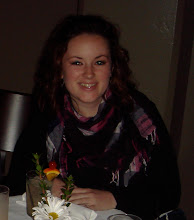I like the idea of GBL. I really do think the best way to learn is experience. As I was grading practice SAT essays this week, the question was...Do students learn better by doing? Most of the students answered yes and said that they would prefer to experience something rather than learn it in a book.
I definately think that we learn by doing and I think that our memories of events trigger our learning. For instance, I was thinking that if students have anxiety from a previous test, then they are likely to remember that and potentially do bad on the next test. But if they learn in a fun environment, where mistakes are welcome and there is no pressure to "learn" they will probably retain information a little better. Learning seems to be easier when there is no stress.
We are able to learn form our mistakes because there is no pressure to be right. We are more instrinsically motivated because there is no concern for grades or performance expectations. The only expectation is to do your best.
I wish there was a way in every subject to present content knowledge followed by practical knowledge. But how do you use a learn by doing approach in a subject like English? In some ways I have seen it done, but seems as though it could not always be accomplished in every subject.
I think for children, especially the children where I teach, if we could turn all of this knowledge into something that will apply to their life they could remember it better. But what about the kids that are more concerned with if they have food or where they will sleep...how do we make the knowledge applicable to their lives...even if we allow them to practice it and experience it.
I think it would be great if we could change our entire state curriculum to a theory like this and base it on technology, but with budget cuts and lack of qualified teachers, how do you implement this? Seems to me that to do something like this with independent adult learners would be useful, but with children you would need at least 2 adults in a room to carry out experiments. With budget cuts, most elementary schools only have 1 teacher per room with no assistants in the upper grade levels.
Overall, I really do like this idea and wish that all schools could operate like this at least part of the day. All of the ifs and buts and what abouts just come from seeing the school systems in eastern NC the way that they are and knowing that it is going to take more than a theory to achieve success.
Sunday, March 7, 2010
Subscribe to:
Post Comments (Atom)

I guess I just can't accept wholly that all learning has to be directly applicable... I don't know how many juniors/seniors in high school would choose to read Shakespeare - but I still think they should read it. :)
ReplyDeleteI do think that what you mentioned about those students who are to concerned about food and safety - that ultimately takes precedence (think of Maslow's needs hierarchy).
And I think students aren't necessarily wary of stress in the learning process so much as fear. What do you think?
I really liked reading your thoughts! :)